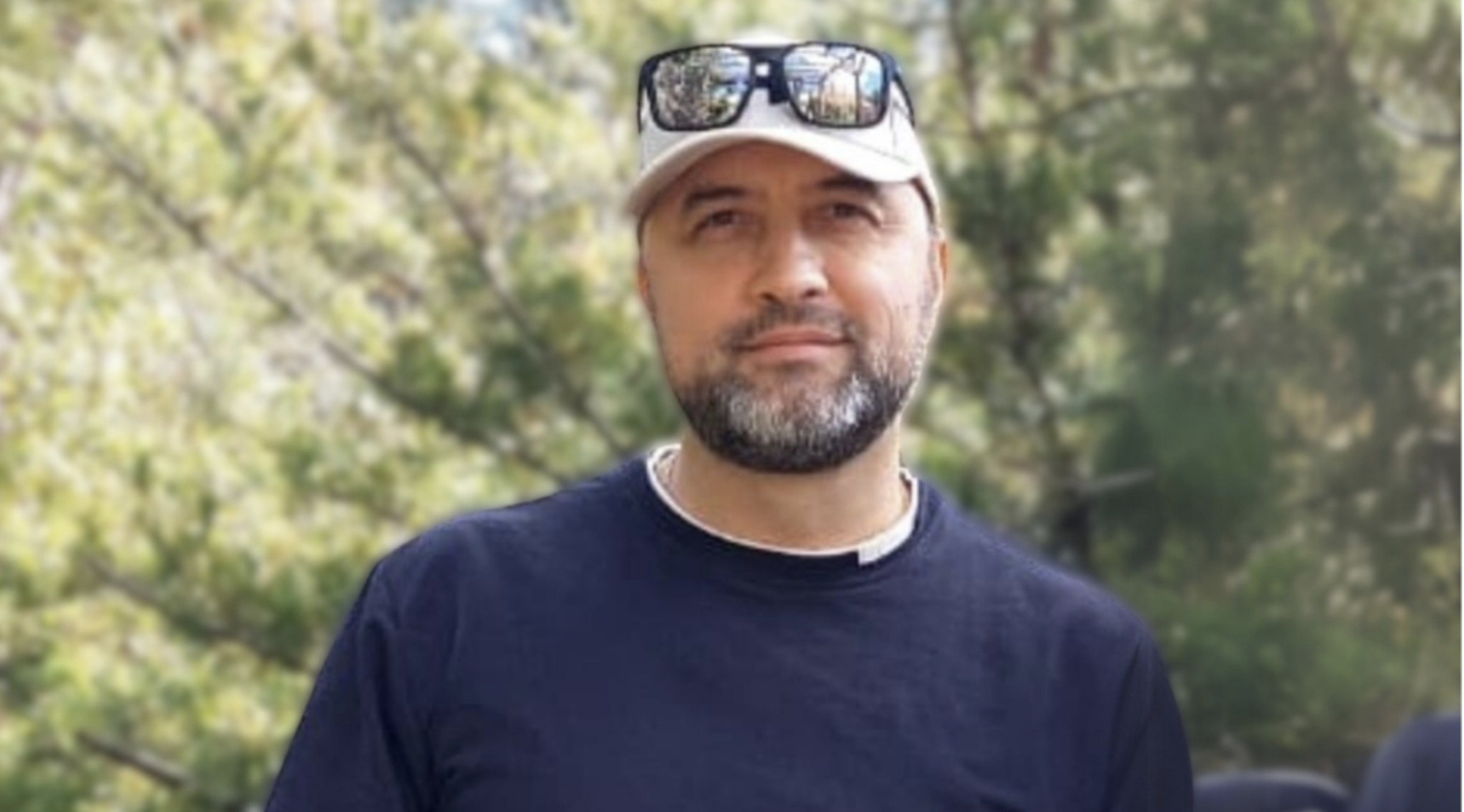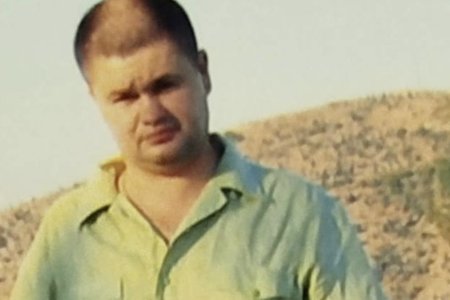
Russia’s Southern District Military Court in Rostov has sentenced 52-year-old Serhiy Lykhomanov to 15 years’ maximum-security imprisonment almost two years after he was seized from his home, almost certainly tortured and held incommunicado, without access to an independent lawyer, This was the second ‘trial’ against Lykhomanov, although only the charges illegally laid under Russian legislation differed, with the impugned actions largely the same. The FSB claimed, for example, that Lykhomanov, who has a small child and was living in a one room apartment, had used his home to store an explosive device. Lykhomanov’s sister rejects all of the charges against it and notes that, in one of the few messages he was able to pass on, he made it clear that any ‘confessions’ had been extracted through threats against his family.
The authoritative Memorial Support for Political Prisoners Project had placed Lykhomanov on its list of probable victims of political persecution long before the second sentence passed on 8 October 2025.
Lykhomanov formerly served in Ukraine’s Armed Forces, with this making him a typical target for the FSB, especially after Russia’s full-scale invasion of Ukraine. The 52-year-old Ukrainian is from Poltava and graduated there from a military engineering college. He moved to Crimea after leaving military service and remained there after Russia’s invasion and annexation due to family circumstances.
Russian FSB burst into his apartment in Sevastopol on 27 December 2023, carried out a ‘search’ and took him away at dawn, barefooted and without proper clothing. His wife and children had been held separately, with the FSB taking away all telephones and computers
For two months the family heard absolutely nothing, with the occupation enforcement bodies not even confirming that he was in custody. His sister explained in an interview to Suspilne Crimea that they only found out he was in a SIZO [remand prison] in February 2024. He had been (and has continued to be) held incommunicado and had no access to an independent lawyer.
He was accused of planning a terrorist attack’ and of ‘state treason’, with the latter supposedly because of help to Ukraine’s Security Service [SBU] in the form of information about the location of military sites in Sevastopol.
The FSB claimed to have found a homemade explosive device prepared for use in causing an explosion on the railways during the ‘search’ carried out of Lykhomanov’s apartment. The suggestion that Lykhomanov could have been storing such an explosive device is roundly dismissed by his sister. It is also quite simply difficult to imagine any father of a young child living in cramped conditions taking such a risk by leaving an explosive device around.
He was sentenced in May 2024 to five years and a 50-thousand rouble fine, with the charge then only of transporting and keeping explosives. In the family’s one-room apartment, he was claimed to have held industrial level and or foreign explosive material. The ‘judge’ - Pavel Kryllo is from Omsk in the Russian Federation, and was transferred to the occupation ‘Gagarin district court’ in Sevastopol in 2016. He has previously taken part in other politically motivated ‘trials’, against Ukrainians Ihor Movenko and Volodymyr Prysich
Lykhomanov had been held without any contact with his family or a proper lawyer. The FSB typically use such periods, where a person may not even have been formally detained, to torture or otherwise force out ‘confessions’. During this first ‘trial’, Lykhomanov did admit to the charges and rejected the services of an independent lawyer but managed to pass on a brief message that he had, after his ‘arrest’, been placed under huge psychological pressure, with his captors threatening to hurt his family. Although in essentially all other known cases, the FSB have also used electric shocks and other forms of physical torture, such threats against a person’s family are also often used. Tetiana is convinced that it was the threats that made her brother behave as he did. “They knew how to pressure him. He has a small child and would sign anything so that they didn’t touch [the child]”.
In that first ‘trial’, Tetiana noted bitterly, her brother had been convicted and sentenced in a day. Judging by the information on the Southern District Military Court website, Lykhomanov’s second ‘trial’ was not much longer. Although the ‘case’ was passed to the Southern District Military Court back on 20 May 2025, there were almost no hearings before ‘judge’ Denis Aleksandrovich Galkin passed sentence on 8 October 2025.
Lykhomanov was sentenced to 15 years’ maximum-security imprisonment, with the first five years in a prison, the harshest of Russian penal institutions. He was also fined another 50 thousand roubles.
The charges this time were of ‘state treason’ (under Article 275 of Russia’s criminal code) and ‘planning an act of terrorism which caused considerable damage to property, and other grave consequences’.
There does not appear to have been any ‘terrorist act’, and the ‘treason’ was, as in the first ‘trial’ based solely on allegations that he had passed on information about military sites in Sevastopol to an SBU officer. This charge is being repeated, almost verbatim, from trial to trial on occupied territory.
It was claimed that Lykhomanov had, in March 2022, via an Internet messenger been ‘recruited’ by an officer of Ukraine’s Security Service for ‘confidential collaboration’ and carried out various tasks in Sevastopol. He was supposed to have received instructions from the SBU officer to gather information about the places of deployment and about the military position of Russian anti-aircraft equipment.
It was further alleged that, from 1 to 21 November 2023, while in Sevastopol, Lykhomaov had found an unnamed ‘accomplice’, who opposed what Russia continues to call its ‘special military operation’ [i.e. its war of aggression against Ukraine]. On 21 and 25 November 2023 the other person had, purportedly, passed Lykhomanov the information he had gathered, with the latter claimed to have passed this on to the SBU officer “during the period from 25 to 31 [sic] November 2023”
Dates are also given for an alleged plan to blow up a railway bridge across the Belbek river on 9 October 2023. Lykhomanov’s alleged role is linked with taking a photograph and sending this to the supposed ‘SBU officer’ and taking an explosive device and other components from a hiding place.
Were there genuinely evidence to back these allegations, it is entirely unclear why a first relatively minor ‘trial’ was staged over a year earlier.
There are disturbing similarities between this case and that of Ukrainian academic Dmytro Shtyblikov, who was seized on 9 November 2016, and accused of a fictitious ‘Ukrainian saboteur’ plot, together with two friends, fellow academic and journalist Oleksiy Bessarabov and retired naval captain Volodymyr Dudka.
The Crimean FSB decided to make Shtyblikov the supposed ‘ringleader’ and held him totally incommunicado, forcing him, also through threats against his family in Sevastopol, to refuse the services of an independent lawyer. He ‘admitted guilt’, received a five-year sentence, only to then be seized again and charged with ‘treason’. He was sentenced on 27 April 2022 to 19.5 years’ imprisonment after a second ‘trial’ behind closed doors (details here).



